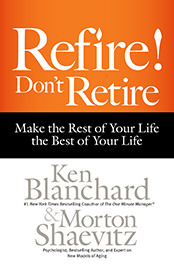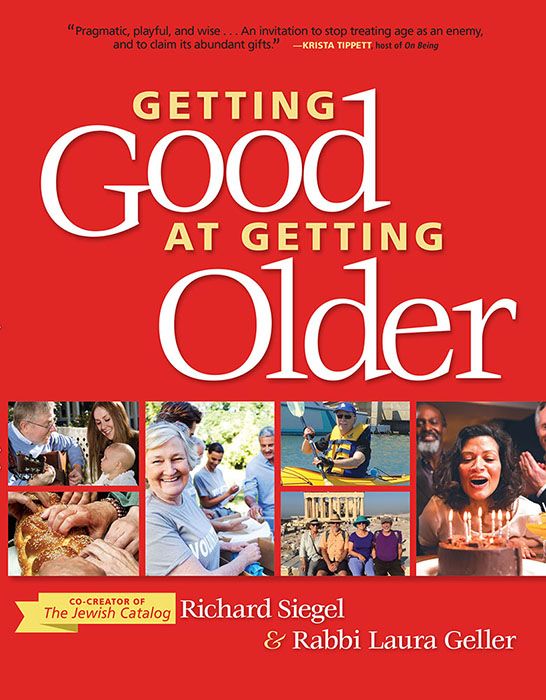We often confuse the effects of inactivity with the ageing process itself, and believe certain diseases are purely the result of getting older.
YOU MIGHT ALSO LIKE
CLEAR ALL
BY TOPIC
BY TYPE
FILTER

TOPIC
- Diet and Nutrition (37)
- Exercise (37)
- Mind-Body Connection (33)
- Performance Pressure (32)
- Peak Performance (29)
- Illness and Injury (28)
- Depression (27)
- Grit (24)
- Kids and Sports (23)
- Neuroscience (23)
- Self-Pressure (23)
- Motivation (22)
- Women’s Well-Being (20)
- Anxiety (19)
- Longevity (19)
- Brain Health (18)
- Gender Discrimination (17)
- Goal Setting (17)
- LGBTQIA Well-Being (17)
- Transitions (16)
- Resilience (15)
- Addiction (14)
- Eating Disorders (14)
- Habits of Mind (14)
- Mentoring (14)
- Mindfulness (14)
- Female Empowerment (13)
- Growth Mindset (13)
- Self-Development (13)
- Clinical Depression (12)
- Confidence (12)
- Happiness (12)
- Memoir (12)
- Retirement (12)
- Self-Care (12)
- Focus (11)
- Meditation (11)
- Search for Purpose (11)
- Stress (11)
- Awareness (10)
- Chronic Anxiety (10)
- Competition (10)
- Healthy Eating (10)
- Homophobia (10)
- Stress Management (10)
- ADD/ADHD (9)
- Habit Formation (9)
- Midlife Crisis (9)
- Self-Actualization (9)
- Self-Discovery (9)
- Self-Reflection Practices (9)
- Activism/Service (8)
- Belonging (8)
- Cancer (8)
- Discrimination (8)
- Endurance (8)
- Facing Own Death (8)
- LGBTQIA Sexuality (8)
- Positive Self-Talk (8)
- Self-Acceptance (8)
- Body Image (7)
- Burnout (7)
- Chronic Health Conditions (7)
- Dementia (7)
- Integrative Medicine (7)
- Leadership (7)
- Mental Health Challenges (7)
- Negative Self-Talk (7)
- Neuroplasticity (7)
- Parenting (7)
- Racial Discrimination (7)
- Sleep (7)
- Spiritual Growth (7)
- Buddhism (6)
- Chronic Pain (6)
- Conflict Resolution (6)
- Creative Well-Being (6)
- Criticism and Rejection (6)
- Energy Healing (6)
- Finding Meaning (6)
- Human Potential (6)
- Imagination and Creativity (6)
- Letting Go (6)
- Living with Illness (6)
- Personal Development (6)
- Positive Psychology (6)
- Self-Healing (6)
- Self-Mastery (6)
- Sexuality (6)
- Spirituality and Health (6)
- Young Adult Well-Being (6)
- Biohacking (5)
- Courage (5)
- Fellowship and Community (5)
- Freedom (5)
- Joy (5)
- Lifestyle Medicine (5)
- Memory (5)
- Performance Anxiety (5)
- Plateauing (5)
- Self-Love (5)
- Social Justice (5)
- Social Responsibility (5)
- Transformation (5)
- Unfulfilled Career (5)
- Vulnerability (5)
- Addiction Recovery (4)
- Authenticity (4)
- Breathwork (4)
- Connection with Nature (4)
- Death and Dying (4)
- Empowerment (4)
- Entrepreneurship (4)
- Epigenetics (4)
- Failure (4)
- Gratitude (4)
- Guided Meditation (4)
- Identity (4)
- Inflammation (4)
- Inner Strengths (4)
- Intention (4)
- Life Challenges (4)
- Optimism (4)
- Psychology (4)
- Racism (4)
- Relationship with Time (4)
- Self-Limiting Beliefs (4)
- Sex (4)
- Shadow (4)
- Suicide (4)
- The Yips (4)
- Visualization (4)
- Weight Concerns (4)
- Acceptance (3)
- Anger (3)
- Anger Management (3)
- Autoimmune Disease (3)
- Black Well-Being (3)
- Cannabis/CBD (3)
- Collaboration (3)
- Disabled Well-Being (3)
- Domestic Abuse (3)
- Empathy (3)
- Fasting for Health (3)
- Fatigue (3)
- Global Challenges (3)
- Healing Approaches (3)
- Honoring Emotion (3)
- Imposter Syndrome (3)
- Inner Peace (3)
- Life-Altering Injury (3)
- Loneliness (3)
- Mindfulness Practices (3)
- Neuropsychology (3)
- Nutritional Medicine (3)
- Offering Support to Others (3)
- Passion (3)
- Poverty/Economic Inequality (3)
- Presence (3)
- Productivity (3)
- Relationship with Money (3)
- Rest (3)
- Ritual (3)
- Self-Compassion (3)
- Self-Worth (3)
- Taoism (3)
- The Feldenkrais Method (3)
- Trauma Healing (3)
- Veganism (3)
- Willpower (3)
- Women’s Rights (3)
- Work Challenges (3)
- A Course in Miracles (2)
- Adaptability (2)
- AIDS (2)
- Alcohol Addiction (2)
- Asking for Help (2)
- Binge Eating (2)
- Body Positivity (2)
- Changes in Libido (2)
- Child’s Emotional Growth (2)
- Chronic Fatigue (2)
- Communication Skills (2)
- Connection (2)
- Curiosity (2)
- Decision Making (2)
- Drug Addiction (2)
- Embodiment (2)
- Emotional Intelligence (EQ) (2)
- Family Dynamics (2)
- Forest Bathing (2)
- Forgiveness (2)
- Friendship (2)
- Functional Medicine (2)
- Gender Justice (2)
- Generosity (2)
- Genetics (2)
- Grace (2)
- Handling a Loved One’s Illness (2)
- Humility (2)
- Identity Shifts (2)
- Inspiration (2)
- Intimacy (2)
- Journaling (2)
- Jungian Analysis (2)
- Love (2)
- Male Friendship (2)
- Massage (2)
- Naturopathy (2)
- Neurodiversity (2)
- Paleo Diet (2)
- Panic Attacks (2)
- Philosophical Approaches (2)
- Physical Therapy (2)
- Racial Justice (2)
- Relationship Challenges (2)
- Reproductive Health (2)
- Self-Control (2)
- Self-Esteem (2)
- Self-Realization (2)
- Self-Reckoning (2)
- Self-Reliance (2)
- Sexual Assault or Abuse (2)
- Shame (2)
- Social Media Addiction (2)
- Speaking Your Truth (2)
- Spiritual Awakening (2)
- Spiritual Development (2)
- Spiritual Practices (2)
- Spiritual Quest (2)
- Transgender Well-Being (2)
- Trauma (2)
- Trust (2)
- Vegetarianism (2)
- Veteran Well-Being (2)
- Work-Life Balance (2)
- Yoga (2)
- Access to Education (1)
- Archetypes (1)
- Awe (1)
- Ayurveda (1)
- Betrayal (1)
- Biofeedback (1)
- Bodywork (1)
- Building Character (1)
- Building Culture (1)
- Bulimia (1)
- Bullying (1)
- Child’s ADD/ADHD (1)
- Child’s Trauma (1)
- Christianity (1)
- Climate Change (1)
- Cognition (1)
- Coming Out (1)
- Community Healing (1)
- Comparing Belief Traditions (1)
- Compassion (1)
- Compassion Meditation (1)
- Conscious Evolution (1)
- Consciousness (1)
- Death or Loss of a Loved One (1)
- Despair (1)
- Digital Life (1)
- Disconnection (1)
- Dysfunctional Childhood (1)
- Ego (1)
- Energy Balancing (1)
- Faith (1)
- Fear (1)
- Gender Challenges (1)
- Goddess (1)
- Highly Sensitive People (1)
- Holism (1)
- Hope (1)
- Immigration and Assimilation (1)
- Immortality (1)
- Indigenous Healing Approaches (1)
- Inner Life (1)
- Integrity (1)
- Interdependence (1)
- Job Loss (1)
- Judaism (1)
- Ketogenic Diet (1)
- Kindness (1)
- Learning Styles (1)
- Light Therapy (1)
- Loss of Partner/Spouse (1)
- Lovingkindness Meditation (1)
- Managing Energy (1)
- Men’s Well-Being (1)
- Mindfulness Meditation (1)
- Moral Philosophy (1)
- Motherhood (1)
- OCD (1)
- Past Lives and Reincarnation (1)
- Play (1)
- Pleasing Parents (1)
- Positive Thinking (1)
- Post-Traumatic Growth (1)
- Pregnancy and Childbirth (1)
- Problem Solving (1)
- Psychology and Spirituality (1)
- PTSD (1)
- Qi (1)
- Qigong (1)
- Raising Daughters (1)
- Regret (1)
- Rolfing (1)
- Sacred Feminine (1)
- Science and Spirituality (1)
- Self-Discipline (1)
- Self-Expression (1)
- Sexual Health (1)
- Shamanic Healing (1)
- Situational Depression (1)
- Slumps (1)
- Social Psychology (1)
- Somatic Practices (1)
- Soul Mission (1)
- Spiritual Healing (1)
- Suicide Loss Survivor (1)
- Sustainability (1)
- T’ai Chi (1)
- Talk Therapy (1)
- Tibetan Buddhism (1)
- Trauma-Informed Therapy (1)
- Wake-Up Calls (1)
- Whiteness (1)
- Work Ethic (1)
- Work Relationships (1)
- Youth Activism (1)
- Zen Buddhism (1)
FILTER

TEACHER
- Chip Conley (4)
- Connie Zweig (4)
- Ken Dychtwald (4)
- Richard Davidson (4)
- Andrew Weil (3)
- Dave Asprey (3)
- Herbert Benson (3)
- Jean Shinoda Bolen (3)
- Zalman Schachter-Shalomi (3)
- Billie Jean King (2)
- Brynn Putnam (2)
- Daniel Amen (2)
- David Perlmutter (2)
- Deepak Chopra (2)
- Gabor Maté (2)
- Gloria Steinem (2)
- Jane E. Brody (2)
- Mantak Chia (2)
- Marianne Williamson (2)
- Megan Rapinoe (2)
- Naomi Osaka (2)
- Ram Dass (2)
- Rich Roll (2)
- Andy Puddicombe (1)
- Angeles Arrien (1)
- Ann Marie Chiasson (1)
- Anne Lamott (1)
- Arianna Huffington (1)
- Barbara Marx Hubbard (1)
- Brendon Burchard (1)
- C. Norm Shealy (1)
- Caleb Marshall (1)
- Christiane Northrup (1)
- Dan Millman (1)
- Daniel Goleman (1)
- Daniel J. Siegel (1)
- David Spiegel (1)
- Dilip Jeste (1)
- Dondi Dahlin (1)
- Elaine Aron (1)
- Ellen Langer (1)
- Elson Haas (1)
- Geneen Roth (1)
- Gerald Jampolsky (1)
- Hildegard von Bingen (1)
- Ida Rolf (1)
- Jack Canfield (1)
- Jack Kornfield (1)
- James Baraz (1)
- James Gordon (1)
- James Hillman (1)
- James Hollis (1)
- Jared Diamond (1)
- Jetsunma Tenzin Palmo (1)
- Joan Borysenko (1)
- Joan Chittister (1)
- Joel Kahn (1)
- John Bradshaw (1)
- John Sarno (1)
- John Wooden (1)
- Julia Cameron (1)
- Justin Michael Williams (1)
- Kareem Abdul-Jabbar (1)
- Karen Casey (1)
- Karen May (1)
- Kathryn Budig (1)
- Kathy Freston (1)
- Kelly McGonigal (1)
- Kris Carr (1)
- Linda Graham (1)
- Louise Hay (1)
- Maria Sirois (1)
- Marie Forleo (1)
- Mark Hyman (1)
- Mark Sisson (1)
- Mark Victor Hansen (1)
- Martha Beck (1)
- Martin Luther King Jr. (1)
- Martin Seligman (1)
- Mary Oliver (1)
- Misty Copeland (1)
- Moshé Feldenkrais (1)
- Muhammad Ali (1)
- Nikki Giovanni (1)
- Nikki Mirghafori (1)
- Parker J. Palmer (1)
- Phil Jackson (1)
- Richard Leider (1)
- Rick Hanson (1)
- Rob Bell (1)
- Robb Wolf (1)
- Sanjay Gupta (1)
- Sarah Blondin (1)
- Shakti Gawain (1)
- Steven Johnson (1)
- Thomas Moore (1)
- Yongey Mingyur Rinpoche (1)










